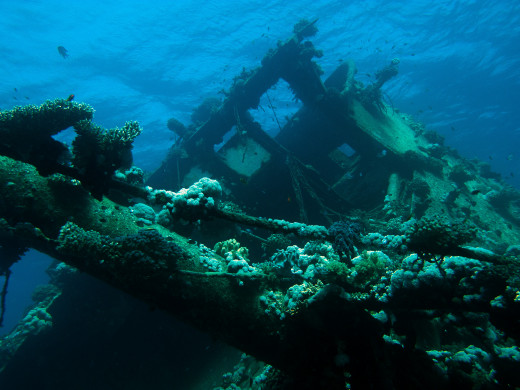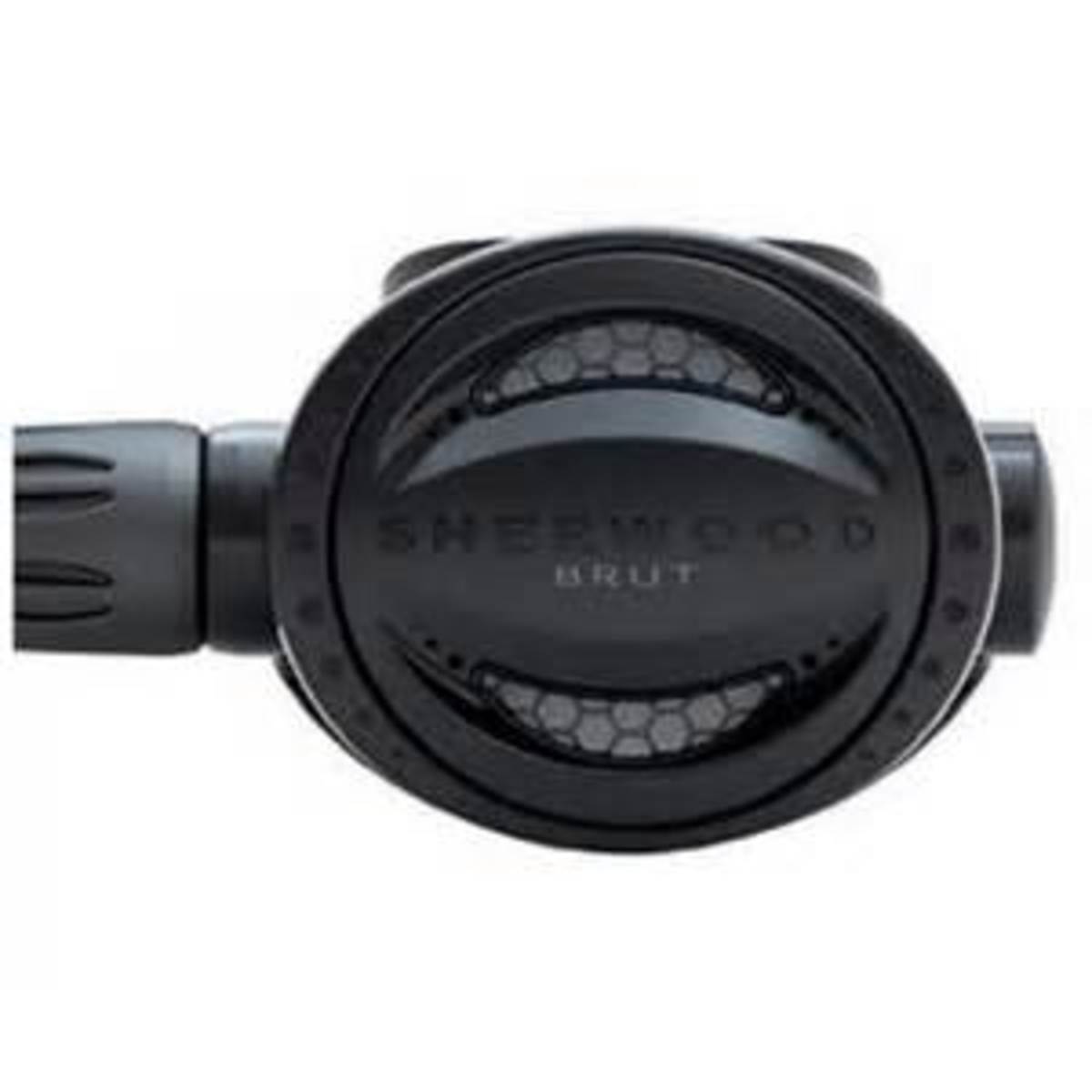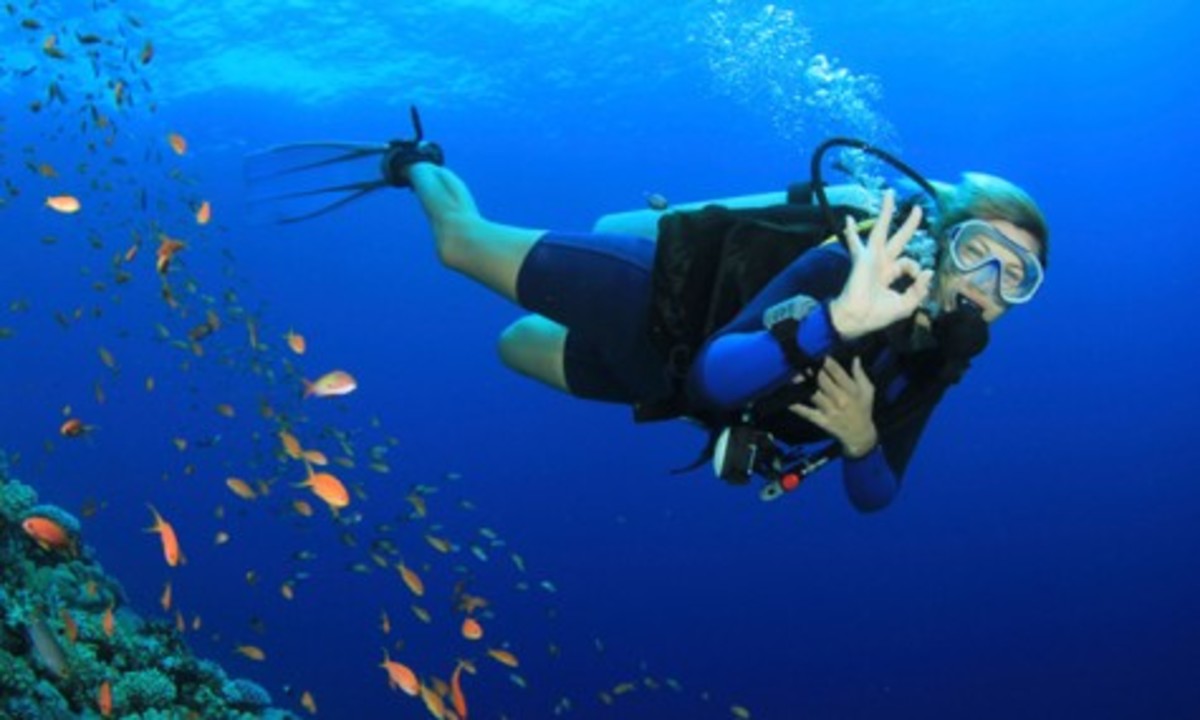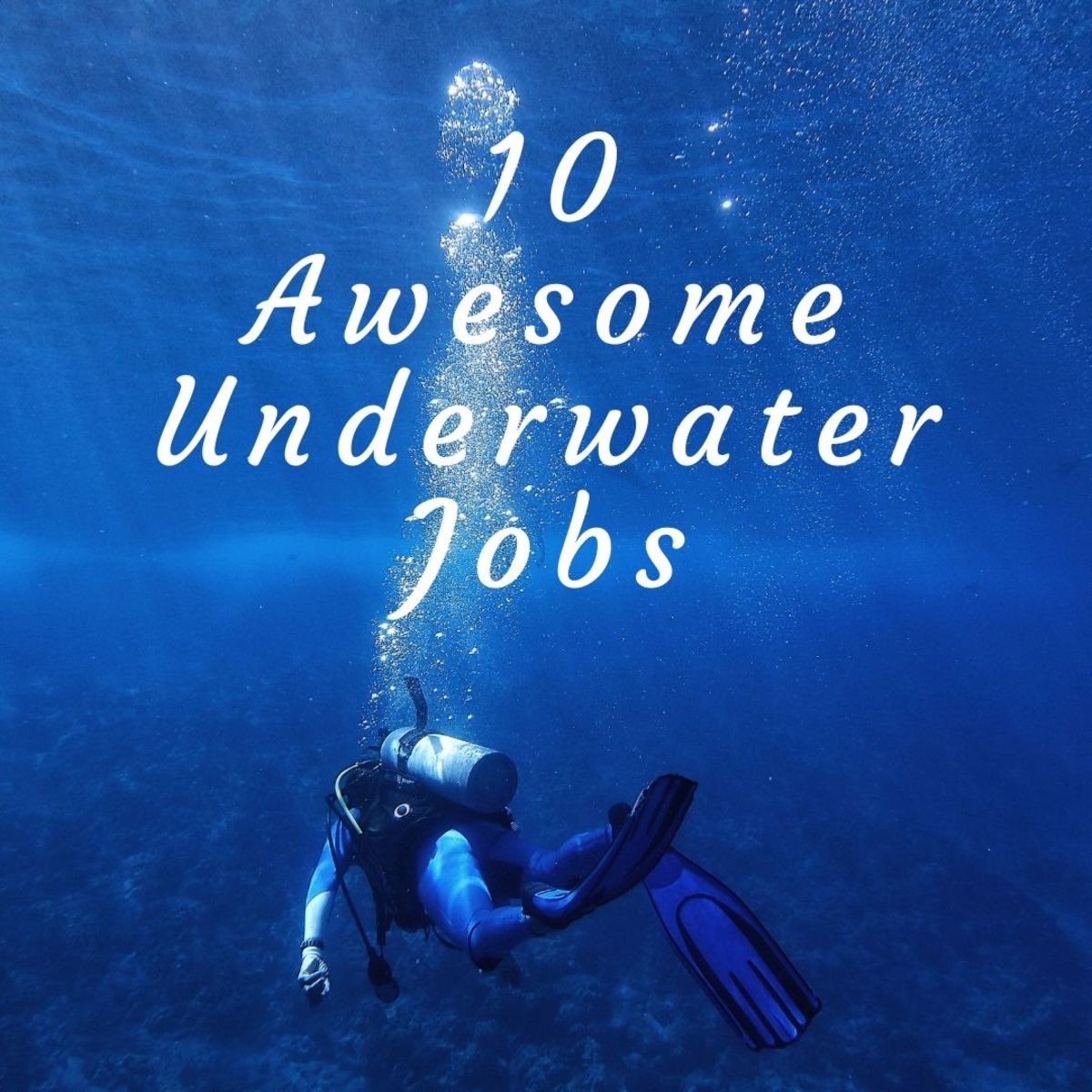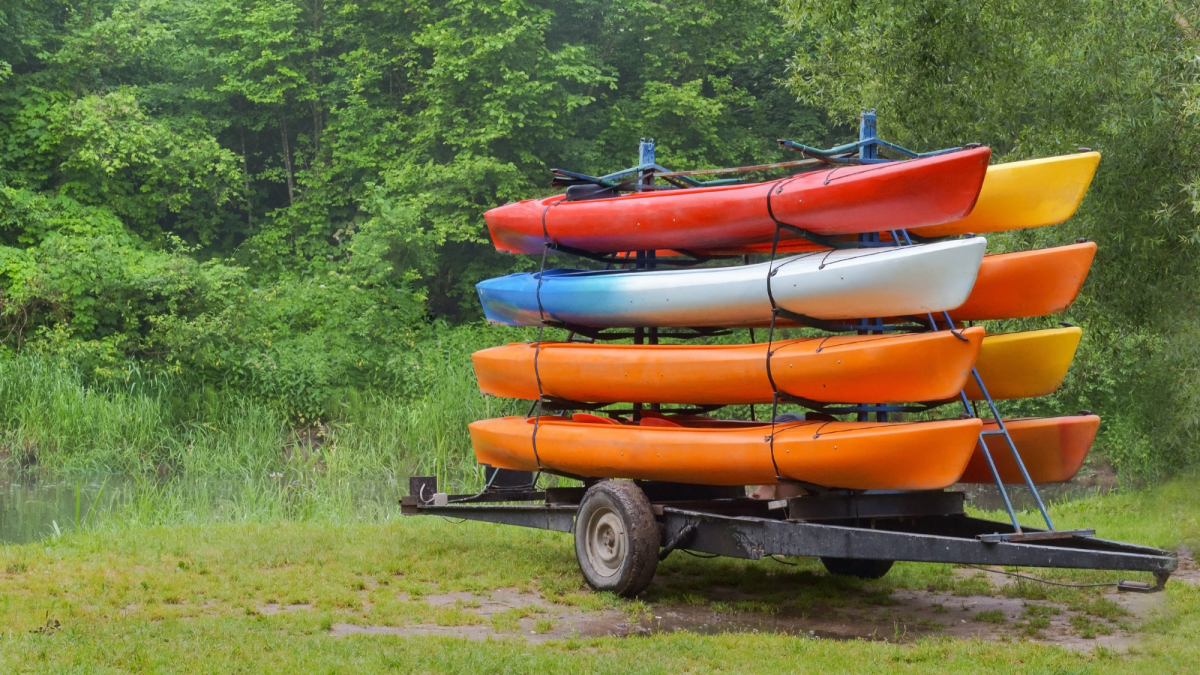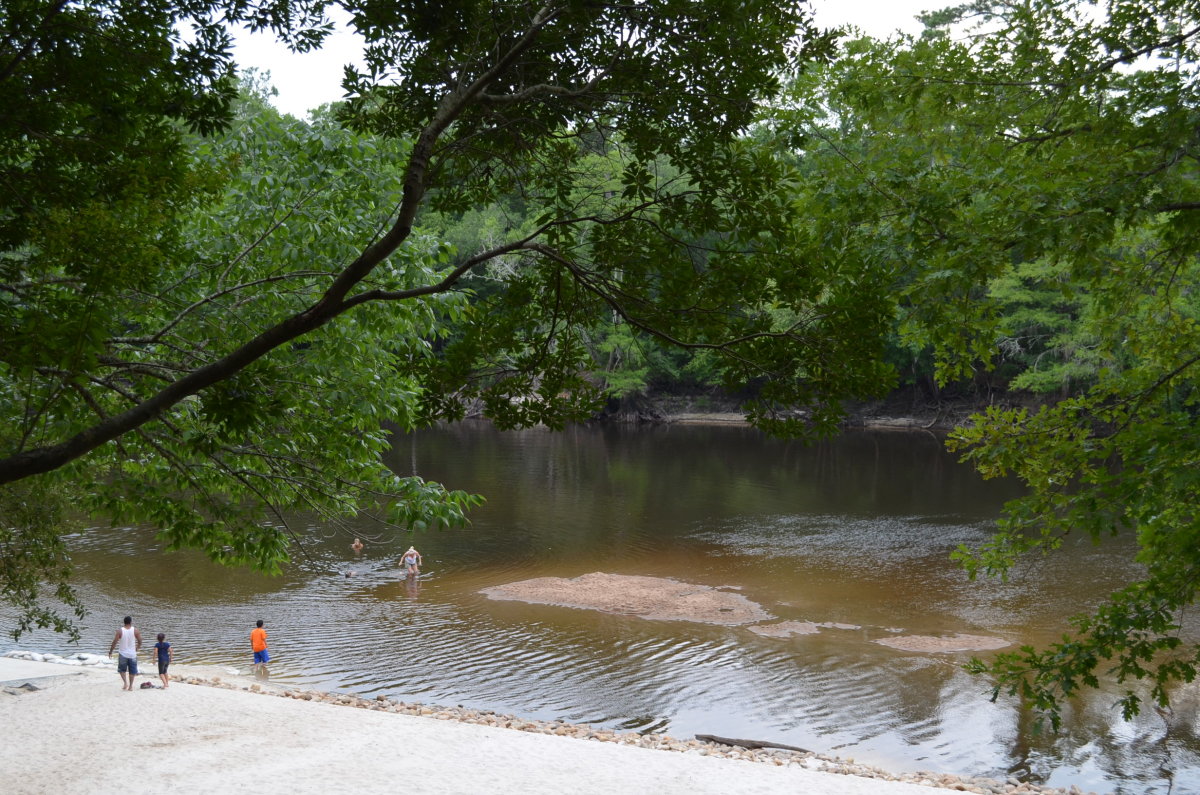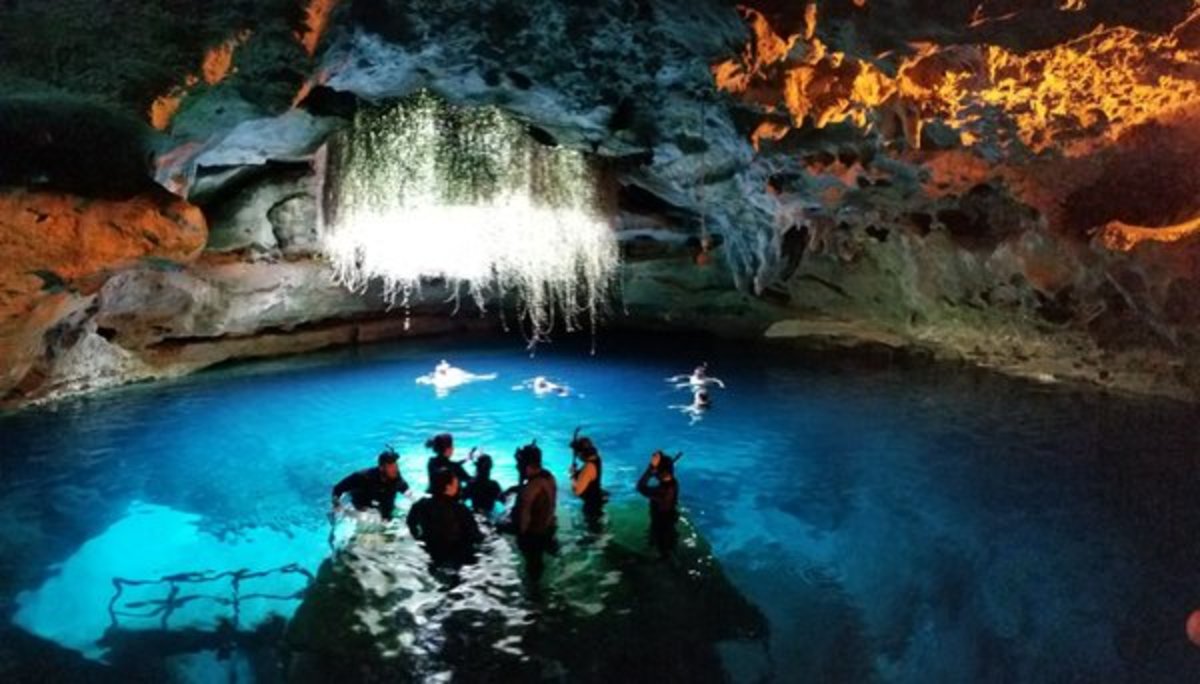- HubPages»
- Sports and Recreation»
- Individual Sports»
- Water Sports
How to Become a Certified Scuba Diver
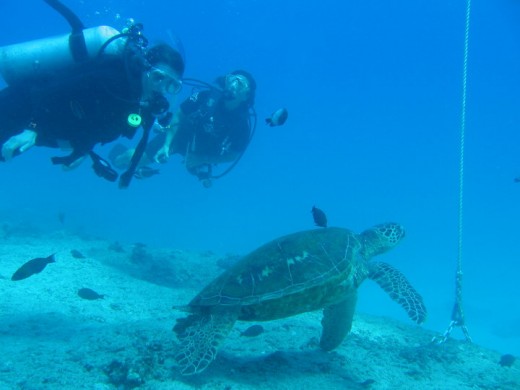
The Joy of Scuba Diving
Imagine floating weightlessly above a thousand year old wreck, through a fifty foot tall kelp forest, or along a reef wall that seemingly drops into oblivion.
Becoming a certified scuba diver allows you the privilege to see a whole new world that few people ever get to see. You will learn new skills, meet interesting people, gain confidence in your ability to problem solve, and experience the joy of interacting with aquatic life up close and personal. This is how you can become a certified scuba diver and begin discovering the incredible world that is under the sea.
Learning how to use the gear safely in a controlled environment, under the direction of a qualified instructor, is the best way to begin your scuba diving adventure.
Why Do I Need to Get Certified?
Although scuba diving is considered a fairly safe sport, without proper training, it can be very dangerous. Learning how to use the gear safely in a controlled environment, under the direction of a qualified instructor, is the best way to begin your scuba diving adventure.
In addition to safety concerns, all dive shops and boats require a certification card from a reputable certifying agency to fill your tank or allow you to dive with them. As long as you are not breaking a local law, it is not generally illegal to dive without a certification card, however, it is highly inadvisable to do so.
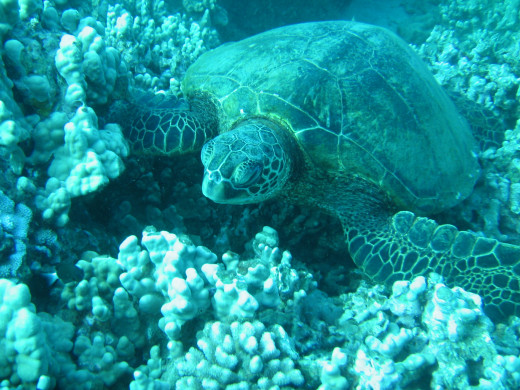
International Scuba Certification Agencies
Profesional Association of Diving Instructors
Scuba Schools International
National Association of Underwater Instructors
Can Anyone Do It?
Health
Across the board, each agency has a minimum health qualification in the form of a written medical history survey and a swimming test. Answer "yes" to any of the medical conditions that can be hazardous when mixed with the sport of scuba diving and you will need permission from your doctor to start the first pool session.
Basically, if you are in good health, can tread water for a couple of minutes, and swim several laps of a pool without stopping, then you will mostly likely pass the certification process.
Experience
You don't need any snorkeling or diving experience to get certified. If you have a fear of water or trouble submerging your face, those fears should be addressed before starting your certification class. If you've never snorkeled before, your instructor can help you learn the correct techniques. Everyone finds it awkward the first time they try it.
Age
Each agency is different in terms of the minimum age required to participate, with additional restrictions put on minors. Most agencies have a minimum age requirement of 10 or 12, with pool only classes for younger divers. Regardless of the qualifications, it is up to each parent to decide if a child is mature enough to take on the sport of scuba diving. They will need to carry a substantial amount of gear, be able to understand basic physics, and react quickly in an emergency situation.
Disabilities
With a little ambition and the right instructor, most physical disabilities can be accommodated for. Divers who are knowledgeable of sign language have the incredible advantage of being able to communicate underwater. Deaf Diving offers classes using American Sign Language.
Using scuba diving to help wounded soldiers has become very popular. The weightless feeling can free wounded soldiers from the physical pain of war, as well as help them heal mentally. The quiet, serene experience of scuba diving has taken away headaches, depression, and post traumatic stress in many of our wounded veterans. Scuba Warriors is on a mission to help hurting veterans by teaching them the joy of learning to scuba dive.
From birth, man carries the weight of gravity on his shoulders. He is bolted to earth. But man has only to sink beneath the surface and he is free.
— Jacques CousteauWhat is the Cost to Get Certified?
The prices will vary depending upon which dive shop and certification agency you choose. The fee to the dive shop will usually cost $100-$300. Other costs to factor in are: Certification fee to the agency for the certification card, study materials, air fills, travel expenses to the dive site, gear rental fees, dive boat fee, and the purchase of non-rented gear.
The items that you may need to purchase are: boots, fins, gloves, a mask, a snorkel, weights, gear bag, a light, batteries, gear clips, a knife, and a log book.
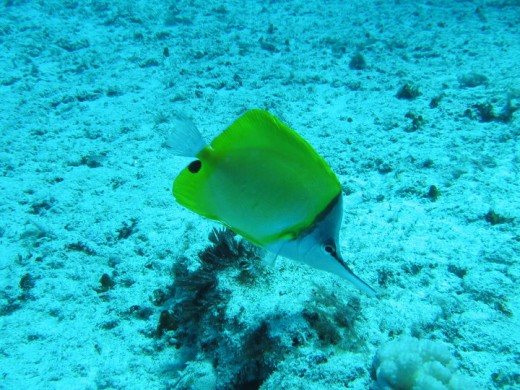
What Gear do I Need?
Although some dive shops in resort towns rent everything, most assume you already own some personal gear. The items that you may need to purchase are: boots, fins, gloves, a mask, a snorkel, weights, gear bag, a light, batteries, gear clips, a knife, and a log book. Dive shops do not make very much money off of your certification fee and need to sell you gear to merely survive.
Depending upon which features and manufacturers you choose, plan on spending between $1000 and $3000 on a complete package of quality gear. The buoyancy compensator, regulator(s), and computer all connect together on the first stage of the regulator making it a good idea to purchase those items together. Tanks, wetsuits, and weights are items you can easily rent a la carte while accumulating your gear.
Buying Local
If you decide to purchase your own gear, there are several benefits to purchasing it at a local dive shop instead of online. Obtaining a valid warranty can be priceless when a piece of gear needs premature servicing or replacement. Unfortunately, most companies do not offer warranties, except through their Authorized Dealers. You can go to the individual company websites to see which shops qualify. I have come across a couple of manufacturers who do not authorize online dealers.
Another reason why purchasing your gear from a local dive shop is beneficial, is because of the relationship you build with the staff. They are certified to repair your gear, make alterations, fit you for a proper size, and recommend gear that is specific to the environment you will be diving in. If you do have an issue with your gear they can be a valuable liaison between you and the manufacturer.
Buying Online
Be very careful purchasing gear online, especially from used auctions. Your gear is your life support underwater so this is not the sport to be cheap with. If you decide to purchase used gear always have it serviced by a certified technician and try out the gear in a controlled environment before taking it on your first dive.
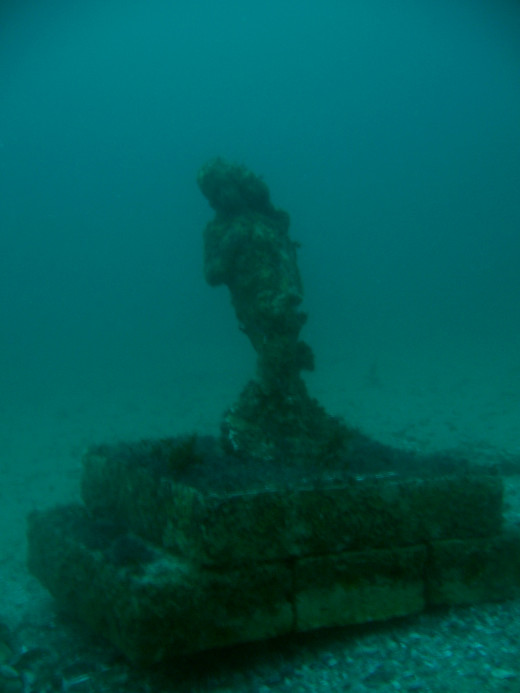
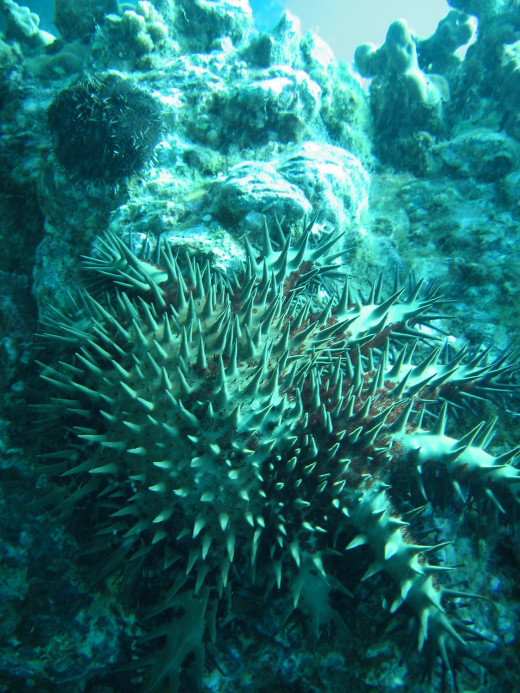
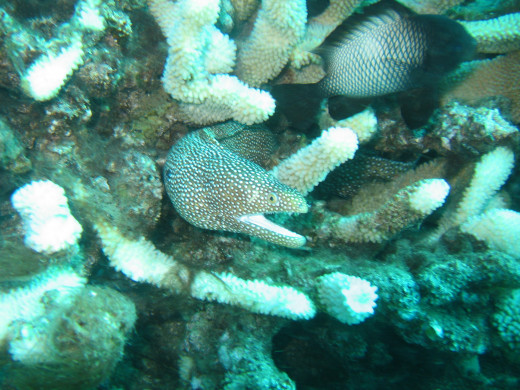
Time to Get Wet
Before scuba diving in Open Water, you will log several hours studying and practicing skills in a pool. For convenience, some agencies now allow the bulk of your instruction and testing to be done online.
Pool Time
The pool sessions are where all the real fun begins. You will learn how to safely set up your scuba gear,and buddy check that every piece of gear is working correctly, before entering the water. Your instructor will guide you to duck your head under the water, while standing or kneeling in the shallow end, to take your first breath from the regulator. It may seem awkward at first, but after a couple breaths you will learn to trust the gear and your instructor's direction.
When you are comfortable, your instructor will guide you into deeper confined water, usually the deep end of a pool, and begin practicing skills. You will learn how to clear a flooded mask, control your buoyancy, take on and off your gear underwater, breath from your dive buddy's primary or alternative regulator, make an emergency accent to the surface, and "find" a regulator that has been knocked out of your mouth.
This might sound intimidating, but one skill you will need to complete is the out of air exercise. This will simulate what it feels like to actually be out of air. Your instructor, never more than an arm's reach from you, will turn off your air. You will suck down the remaining air that is trapped in the regulator's hose, signal to your instructor that you are "out of air" and need to "buddy breath," then secure your instructor's alternate air source and continue breathing normally. Your instructor will turn your air back on before you return to breathing off of your own regulator. You will be more prepared for an out of air emergency after completing this critical skill.
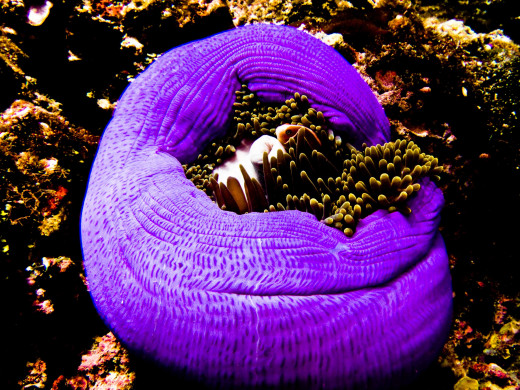
Open Water
To complete your certification, you will make several dives in 20-60 feet of water. The majority fo your time underwater will be practicing the skills you have already mastered in the pool sessions. You will also tour the dive site and look at cool stuff you've only seen in aquariums until now.
Diver's Playground
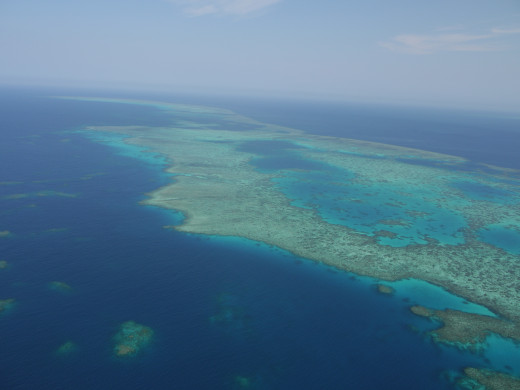
You're Certified, Now What?
Go dive your little heart out! Go ahead, join a dive club, take a beach vacation, or book a live aboard.
Beyond always diving with a buddy, it is recommended within the industry that you only dive in the same environments in which you were trained. For instance, if your training dives where at a calm lake, you may need further training in order to battle the waves of a rocky coastline. If you want to dive at night, wreck dive, cave dive, ice dive, or dive deeper than the recommended limit set forth by your certifying agency, then it is advised that you continue your diver education and take the appropriate classes. Each agency is different in terms of how you move up the certification ladder.
All certification and qualification particulars have purposly been left out due to the differences in each certification agency and their ability to change at their own discretion to fit the needs of the industry. Your experiece may differ from the above layout. Dive at your own risk!
Scuba Diving Can Make History Come Alive
